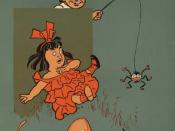The term "agoraphobia" comes from the Greeks, the word "agora" meaning the market place. Agoraphobia was a term coined by the German neurologist Westphal in 1871. Westphal felt the term was appropriate because it described how people felt vulnerable in public places and in particular where there was no obvious exit. In his original description, Westphal described his four patients who had attacks of anxiety in public places. He described how several of them used alcohol to reduce their fears. The term agoraphobia has been widely misunderstood by many. Two major characteristics are associated with agoraphobia are 1.) People develop anxiety when thinking about being in a situation out of their comfort zone. They fear feeling trapped in a situation where they judge it would be difficult or embarrassing for them to leave the situation. 2.) People avoid those situations which bring them anxiety or panic. It is the fear of the anxiety that leads to the agoraphobia.
Its literal definition suggests a fear of "open spaces". People suffering from agoraphobia sometimes fear that they are "losing" their mind or "going crazy" because of their fears and anxiety. This is an incomplete and misleading view. Agoraphobics are not necessarily afraid of open spaces. They could be afraid of having panicky feelings, wherever these fearful feelings may occur. For many people, it could happen at home, in places of worship, or in crowded supermarkets, places that are certainly not "open".
Less than one percent (1%) of the population of the United States is thought to have agoraphobia. The rate of agoraphobia without panic disorder is a big controversial issue as different studies have found different rates. Among the general population approximately 2 to 5 out of every 100 people report symptoms of agoraphobia without any history of panic disorder. However...


